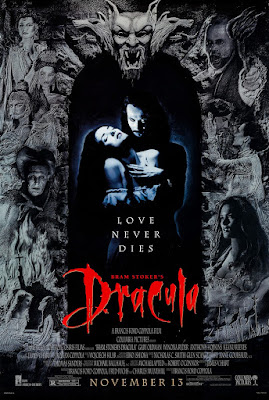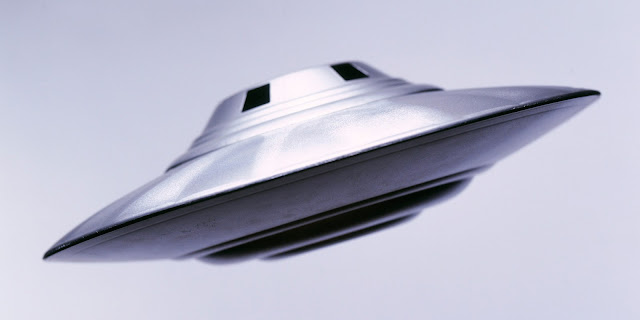The other day a committee of aliens came to me (crazy, I know), and they explained to me that they have stellar nurseries in which they hatch their own, but for it to work they need tons of biomass. They explained how places like earth are just some wild farm from where to gather this biomass, and that we are about to be harvested. Even then, they feel bad about all the countless species to have extincted so far, so they have a tradition (just to make them feel better about the xenocides). When they are about to harvest a planet they ask their inhabitants for some token of their culture to be stored in their quantum crystal digital stores, so they will be preserved forever and seen in a billion worlds for a billion years. In our case they want movies, ten of them. As they understand society, any chain is as week as the weakest link, so all individuals have to be equally prepared for everything at all times in their species; hence, for anything they just choose someone at random, and that's what they apply to others also (rings a bell?). They have explained to me that I have been chosen at random from seven billion, and that I have to choose these ten movies as the only thing that will remain from us once we are harvested. This is just a farm, none will survive, it's the end of all days. We humans don't work like that, we specialize, but that's how it has to go down, so even I am no one to say, in my most humble opinion these would be my top ten, in no particular order, and the reasons why.

Blade Runner (1982, Ridley Scott)
IMDB 8.2, Rotten Tomatoes 89%
Where Science-Fiction, Philosophy and Noir meet at their best (AKA cyberpunk), if I could only pick one movie for the alien's repository of gems from every planet they've wiped out, chances are it would be Blade Runner. Only the question asked here... what happens when we have the tech to build synthetic humans, that feel and think as you or me do, that come with "best before" date for cheap and disposable work force? Based on the equally genius novel Do Androids Dream of Electric Sheep? by Philip K. Dick.
I've seen things you people wouldn't believe. Attack ships on fire off the shoulder of Orion. I watched C-beams glitter in the dark near the Tannhauser gate. All those moments will be lost in time... like tears in rain... Time to die.
IMDB 8.9, Rotten Tomatoes 94%
The best portrayal in movies of how random, cruel, vicious, stupid and greedy humans can be. Not sure a good idea that the aliens see this one, but only the conversation about feet massage with Vincent and Jules backs on camera makes it worth it. A master piece of apparently absurd dialogue that hides profound knowledge and wisdom about human nature.
Ezekiel 25:17. The path of the righteous man is beset on all sides by the inequities of the selfish and the tyranny of evil men. Blessed is he who, in the name of charity and good will, shepherds the weak through the valley of the darkness, for he is truly his brother’s keeper and the finder of lost children.
IMDB 8.7, Rotten Tomatoes 86%
Christopher Nolan is one of the best directors of all time, and sure the best from his generation, and this is probably his best movie. A dream within a dream. A spinning top spinning on a table as the final scene presents you with at least seven possible endings. And the cast of the movie delivers some of the best acting ever seen in a movie.
What is the most resilient parasite? Bacteria? A virus? An intestinal worm? An idea. Resilient... highly contagious. Once an idea has taken hold of the brain it's almost impossible to eradicate. An idea that is fully formed - fully understood - that sticks; right in there somewhere.
IMDB 8.8, Rotten Tomatoes 79%
Every generation has their own big adversity, you name it: the black plague, the crusades, the inquisition, world wars, cold wars, great economic depressions; but not us, we are the sons of apathy with nothing to fight for but our hedonistic desires, and no greater enemy than ourselves. And this movie is the perfect reflection of that reality, plus the brilliant script and the stellar performance by Brad Pitt and Edward Norton. Based on the book of the same name by Chuck Palahniuk.
Advertising has us chasing cars and clothes, working jobs we hate so we can buy shit we don't need. We're the middle children of history, man. No purpose or place. We have no Great War. No Great Depression. Our Great War's a spiritual war... our Great Depression is our lives.

IMDB 8.0, Rotten Tomatoes 96%
Humans have replaced so many parts of them for machines that they are hardly human, and machines are so evolved that they have feelings more humane than humans. The story of a hybrid between human and machine discovering what she is and of an AI born in the vast information sea of what we know today as the internet. Based on the manga of the same name by Masamune Shirow published in 1989, when the internet as we know it today was but a dream.
If a technological feat is possible, man will do it. Almost as if it's wired into the core of our being.

IMDB 9.0, Rotten Tomatoes 97%
[This one is interchangeable with the first one, for me, part II is better since I am more a Robert de Niro person than a Marlon Brando person, but both are sublime].
The Godfather. shit. If this one (or the first one) is not on your top ten list you need to have an MRI done on your head to look for brain damage. I am not even going to argue why this movie is here.
My father taught me many things here - he taught me in this room. He taught me: keep your friends close, but your enemies closer.
The Matrix (1999, Lana and Lilly Wachowski)
IMDB 8.7, Rotten Tomatoes 87%
The Wachowskis took East and West philosophy, computer programming, martial arts, Ghost in the Shell, Rene Descartes and Isaac Asimov to ensemble one of the most influential, imitated, mind blowing and aesthetically perfect movies ever made. And I love the sequels too, contrary to popular opinion. I know this is usually a trope, but in my case, I actually only say this of two movies (this one, and its sequels, and Inception): If you don't like them, it's because you don't understand them really. And the worst thing is believing you understand them when you don't, for you cannot learn a thing you think you know.
This is your last chance. After this, there is no turning back. You take the blue pill - the story ends, you wake up in your bed and believe whatever you want to believe. You take the red pill - you stay in Wonderland and I show you how deep the rabbit-hole goes.
IMDB 7.4, Rotten Tomatoes 62%
The best of the very few movies that takes a serious and believable approach to the first contact with an alien civilization (hello
Arrival). A beautiful story of hope for mankind amidst an age of technological and scientific advance and ideological and political stupidity. Based on the book of the same name by Carl Sagan, one of the best human beings ever born. We miss you Dr. Sagan.
You're an interesting species. An interesting mix. You're capable of such beautiful dreams, and such horrible nightmares. You feel so lost, so cut off, so alone, only you're not. See, in all our searching, the only thing we've found that makes the emptiness bearable, is each other.

IMDB 8.0, Rotten Tomatoes 92%
Ridley Scott has in this list Blade Runner, which is one the most dystopic, dark and depressing movies you can imagine, while he also directed The Martian, a movie about optimism, about never surrendering, about using our most powerful weapon to overcome any obstacle: our intellect and knowledge. Plus the power of science. And I never liked Matt Damon, that is, until I saw this movie, in which he proved to me what he can do. Based on the book of the same name by Andy Weir.
In the face of overwhelming odds, I'm left with only one option, I'm gonna have to science the shit out of this.
Dracula (1992, Francis Ford Coppola)
IMDB 7.5, Rotten Tomatoes 78%
Many books have been adapted to movies, and almost always the book is better than the movie (especially in the case of the Lord of the Rings). Not this once, this Coppola adaptation of one of the most (in)famous books in human history beats the novel by Bram Stoker, and that's a lot to say from me, since the book is also one of my favorite ones. Contrary to the appearances, a story about what happens when we find ourselves out of our place and out of our time. We would all be monsters if suddenly we are placed in a different country 500 years from now. And it also happens to be one of the most beautiful love stories ever made.
I have crossed oceans of time to find you.
On a side note(s)
there are several things that appear more than once in this ten movies: both Ridley Scott and Francis Ford Coppola directed two of them. Coincidentally, Keanu Reeves is in two of them (The Matrix and Dracula) although he only has a lead role in one of them. Two of them were made the same year, 1999 (The Matrix and Fight Club). Six of the ten are Science-Fiction. Eight of them are based on books (where most good stories come from). And all but one (Ghost in the Shell) are from the States, which makes me think, we can say tons of shit about the people from the stars and stripes country, but they do know their shit when making movies (to be fair the have probably also done 9 of the 10 worst movies ever done, but who cares?).
I feel sad there is no more space in the alien's quantum crystal digital stores for some James Cameron and Martin Scorsese movies, which are obviously the honorable mentions for this list.
And finally, no, Citizen Kane could not be here. That is one of the shitiest movies I have ever suffered. I would prefer to take out my nails using my teeth rather than to have to watch it again. Fuck Citizen Kane.


























